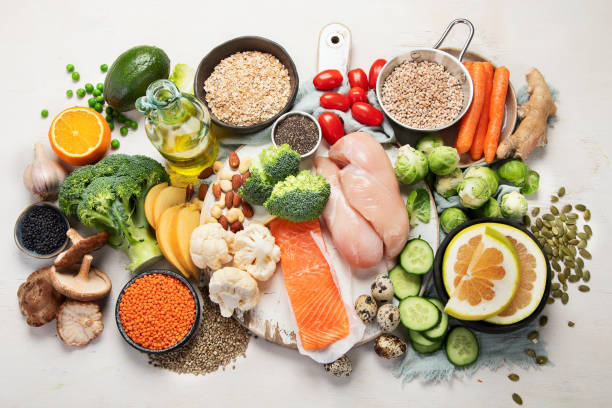Top Foods to Lower Cholesterol and Promote Heart Health
High cholesterol levels can be a significant risk factor for heart disease, but there are numerous natural ways to manage and reduce cholesterol without relying solely on medication. This article explores effective dietary and lifestyle changes that can help lower cholesterol and promote heart health.

What foods can help lower cholesterol levels?
Several foods have been shown to have cholesterol-lowering properties. Oats and barley are excellent sources of soluble fiber, which can help reduce LDL (bad) cholesterol. Fatty fish like salmon, mackerel, and sardines are rich in omega-3 fatty acids, which can increase HDL (good) cholesterol and lower triglycerides. Nuts, particularly almonds and walnuts, contain healthy fats and fiber that can help lower LDL cholesterol. Avocados are another great source of heart-healthy monounsaturated fats and fiber. Additionally, fruits like apples, grapes, and citrus fruits contain pectin, a type of soluble fiber that can help lower cholesterol levels.
How do heart-healthy fats contribute to cholesterol management?
Contrary to popular belief, not all fats are bad for cholesterol. Heart-healthy fats, such as monounsaturated and polyunsaturated fats, can actually help improve cholesterol levels. These fats can be found in olive oil, avocados, nuts, and fatty fish. They work by increasing HDL cholesterol, which helps remove excess cholesterol from the bloodstream. Additionally, replacing saturated and trans fats with heart-healthy fats can help lower LDL cholesterol levels. Incorporating these healthy fats into your diet through cooking methods like sautéing with olive oil or adding nuts to salads can significantly impact your cholesterol profile.
What high-fiber options are effective for lowering cholesterol?
Fiber plays a crucial role in cholesterol management, particularly soluble fiber. This type of fiber binds to cholesterol in the digestive system, preventing its absorption into the bloodstream. Excellent high-fiber options for lowering cholesterol include oats, barley, beans, lentils, and psyllium husk. Whole grains like quinoa and brown rice are also good sources of fiber. Fruits and vegetables, especially those with edible skins or seeds, provide both soluble and insoluble fiber. Aim to include a variety of these high-fiber foods in your diet to maximize their cholesterol-lowering benefits.
What are considered healthy cholesterol levels?
Understanding healthy cholesterol levels is essential for managing cardiovascular health. According to the American Heart Association, optimal total cholesterol levels should be less than 200 mg/dL. For LDL cholesterol, levels below 100 mg/dL are considered optimal, while HDL cholesterol levels should be 60 mg/dL or higher. Triglycerides, another type of fat in the blood, should be below 150 mg/dL. However, it’s important to note that these are general guidelines, and individual target levels may vary based on factors such as age, gender, and overall health status. Regular check-ups with a healthcare professional can help determine your specific cholesterol goals.
What natural supplements can help manage cholesterol levels?
Several natural supplements have shown promise in managing cholesterol levels. Plant sterols and stanols, found naturally in some foods and available as supplements, can help block cholesterol absorption. Red yeast rice contains compounds similar to statins and may help lower LDL cholesterol. Soluble fiber supplements like psyllium husk can be effective in reducing cholesterol levels. Omega-3 fatty acid supplements, derived from fish oil or algae, can help increase HDL cholesterol and lower triglycerides. Additionally, garlic supplements have been associated with modest reductions in total and LDL cholesterol levels.
How can lifestyle changes complement dietary efforts?
While dietary changes are crucial for managing cholesterol, incorporating lifestyle modifications can enhance their effectiveness. Regular physical activity, particularly aerobic exercises like brisk walking, jogging, or cycling, can help increase HDL cholesterol and lower LDL cholesterol. Aim for at least 150 minutes of moderate-intensity exercise per week. Maintaining a healthy weight is also essential, as excess body fat can contribute to high cholesterol levels. Quitting smoking and limiting alcohol consumption can further improve your cholesterol profile and overall heart health. Stress management techniques like meditation or yoga may also have positive effects on cholesterol levels.
In conclusion, managing cholesterol levels through diet and lifestyle changes is a powerful approach to promoting heart health. By incorporating cholesterol-lowering foods, heart-healthy fats, and high-fiber options into your diet, you can make significant strides in improving your cholesterol profile. Understanding healthy cholesterol levels, considering natural supplements, and adopting a heart-healthy lifestyle can further enhance your efforts. Remember, these strategies work best when combined and maintained over time, so consistency is key to achieving and maintaining optimal cholesterol levels.
This article is for informational purposes only and should not be considered medical advice. Please consult a qualified healthcare professional for personalized guidance and treatment.




